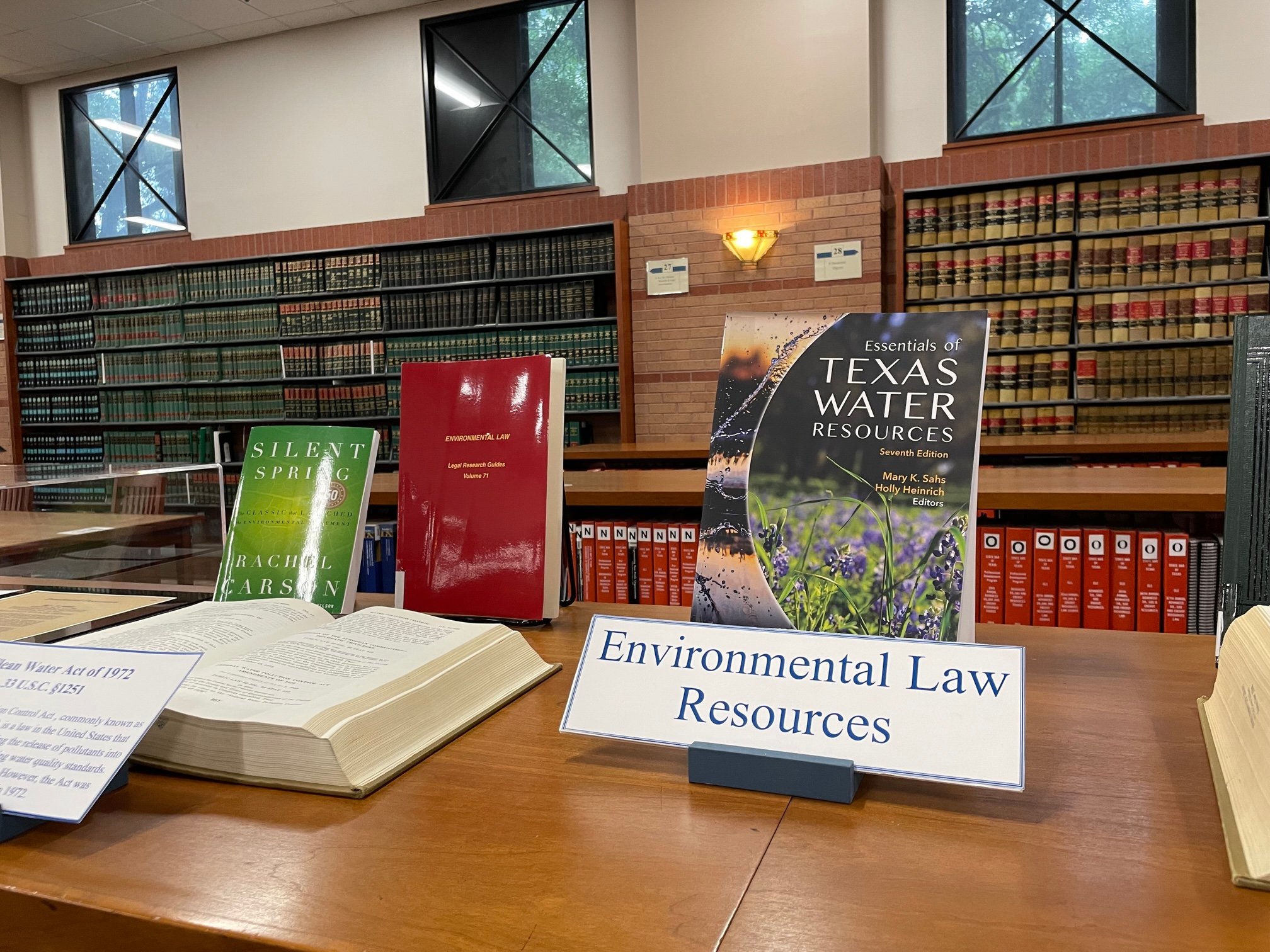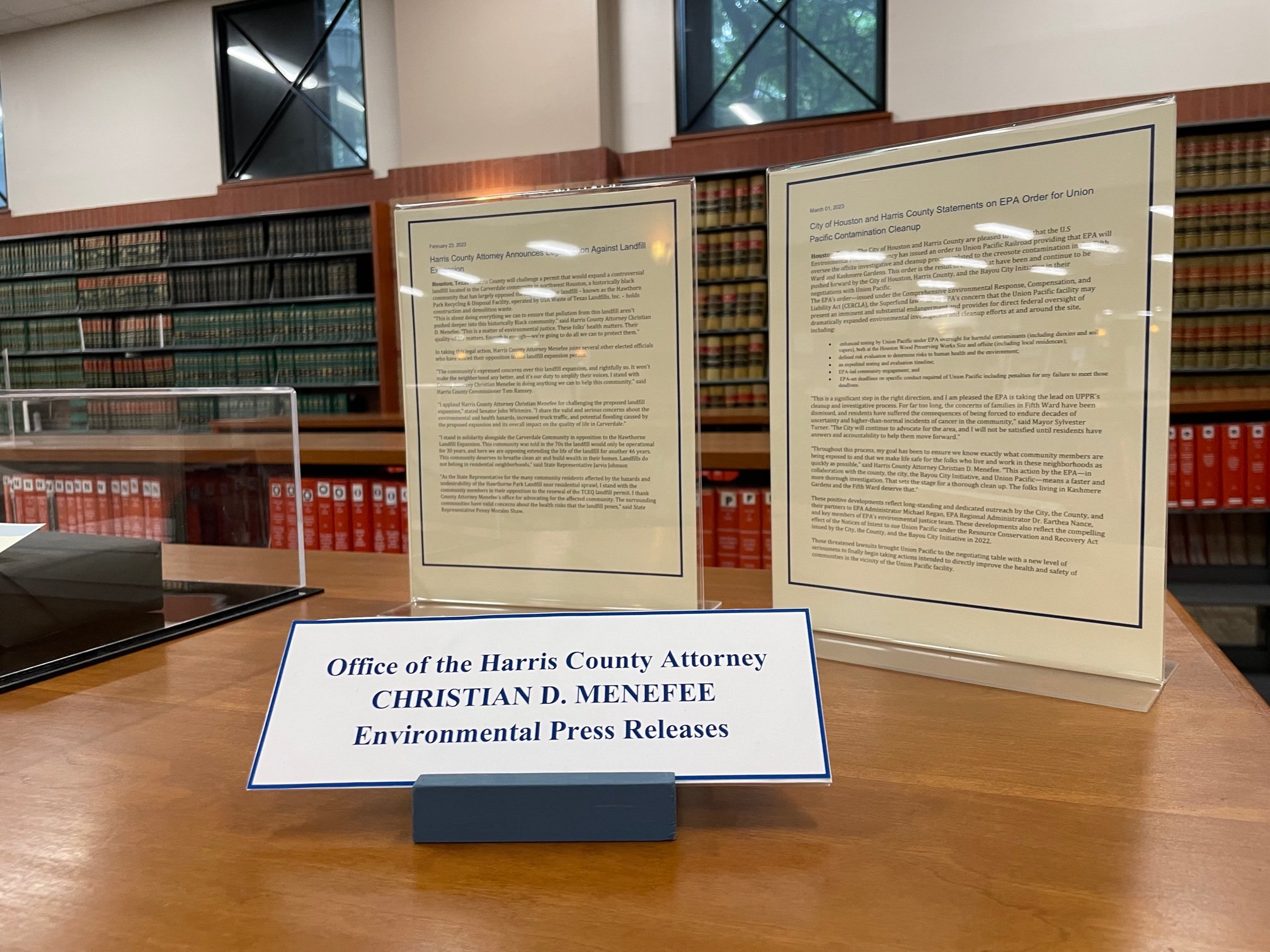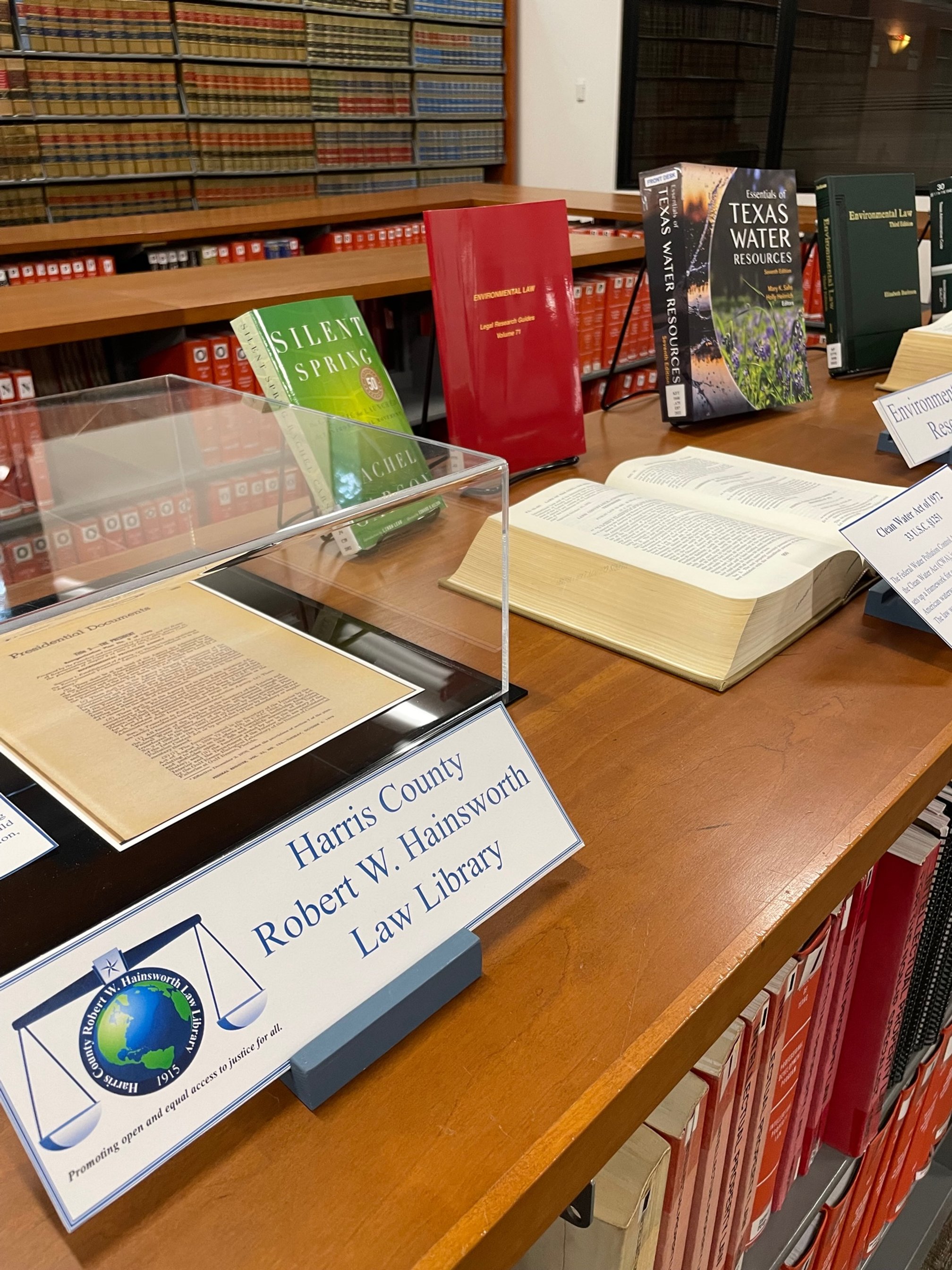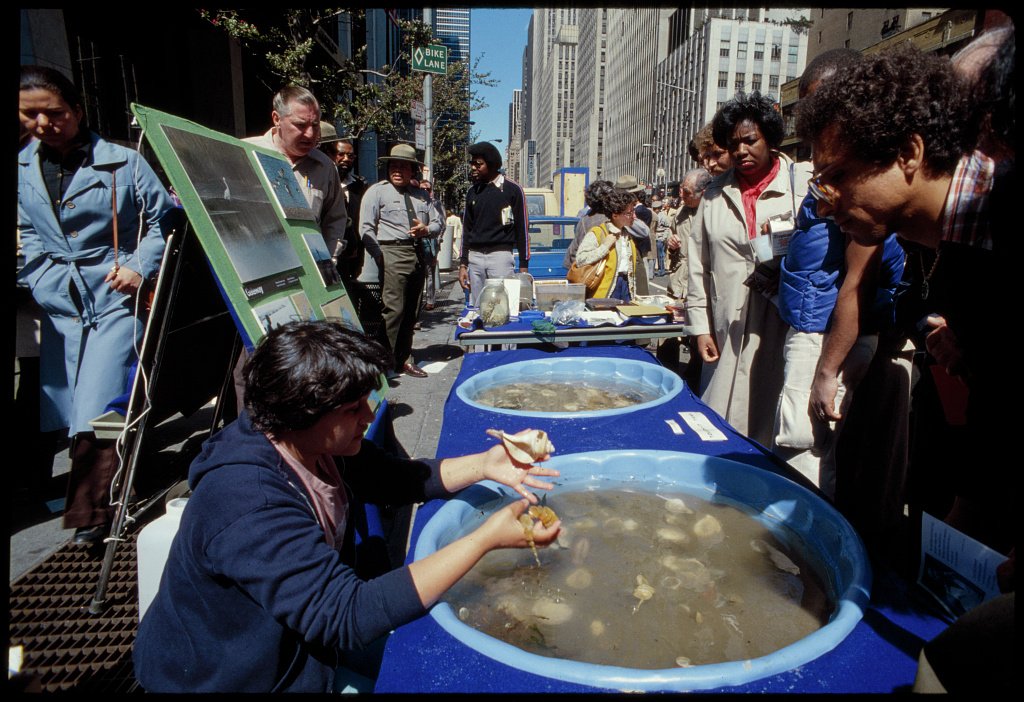Earth Day



The first Earth Day celebration was held on April 22, 1970, the same year in which President Richard Nixon announced a reorganization plan that established the Environmental Protection Agency (EPA) and the National Oceanic and Atmospheric Administration (NOAA).
Less than a decade earlier (1962), Rachel Carson wrote Silent Spring, a seminal work on the environment that influenced federal legislation, including the Clear Air Act of 1970 (42 U.S.C. § 7401) and the Clean Water Act of 1972 (33 U.S.C. § 1251). Featured here are a few of these items along with other environmental law resources.
Silent Spring by Rachel Carson
In 1962, the book "Silent Spring" was published and quickly became a bestseller. Rachel Carson drew upon numerous sources to support her argument that humans were recklessly using potent, long-lasting chemical pesticides without fully understanding the harm they could cause. Carson urged readers to take responsibility, act with caution, and serve as responsible stewards of the natural world.
The library has a copy of Silent Spring by Rachel Carson, QH 545 .P4 C38 2002, currently available.
National Environmental Policy Act, 42 U.S.C. § 4321
The National Environmental Policy Act 42 U.S.C. § 4321, (N.E.P.A.), was signed into law by President Richard Nixon in 1970. The goal of the N.E.P.A. was to establish a nationwide policy for the environment. The Environmental Protection Agency was formed during this time. This act also allowed for the creation of the Council on Environmental Quality, C.E.Q. This act was the first significant legislation for the protection of the environment as it pertains to public health in the United States. Federal agencies could now evaluate the environmental consequences of most proposed Federal actions. This evaluation of actions allowed the Federal Government to make decisions regarding policy and the environment.
Clean Air Act of 1970
42 U.S.C. § 7401
The Clean Air Act of 1970, 42 U.S.C. § 7401 (C.A.A.) is a federal law in the United States that governs air pollution emissions. This law gives the Environmental Protection Agency (EPA) the authority to create the National Ambient Air Quality Standards (N.A.A.Q.S.) to safeguard public health and welfare, as well as to oversee the release of hazardous air pollutants.
Clean Water Act of 1972
33 U.S.C. § 1251
The Federal Water Pollution Control Act, popularly known as the Clean Water Act of 1972, 33 U.S.C § 1251 (C.W.A.), is a law in the United States that sets up the rules for controlling the release of pollutants into waterways and regulating water quality standards. The law was first introduced in 1948, however, was later revised and expanded in 1972.
Texas Commission on Environmental Quality
The origins of the Texas Commission on Environmental Quality are complex. The first Environmental agency was the Texas Board of Water in 1913, but over the years, different Texas agencies were combined to create what is now known as the Texas Commission on Environmental Quality.
The Texas Commission on Environmental Quality governance emphasizes the importance of informed decision-making based on the law, science, and common sense, ensuring necessary and effective environmental regulations. Their principles also stress the importance of meaningful public participation, promoting voluntary compliance, providing flexibility in achieving environmental goals, and hiring and retaining a high-quality workforce.
Office of the Harris County Attorney, Christian D. Menefee, Environmental Division
By advocating for environmental protections, the Environmental Division of the Harris County Attorney’s Office plays an important role in improving the lives of all Harris County residents. Through their expertise, they are helping the community by fighting the battle that involves a complex legal system that governs environmental rights and protections. Their efforts enhance public health, which creates a more equitable and livable community for all Harris County residents.
Recently, Christian D. Menefee “submitted formal comments to the Environmental Protection Agency (EPA) advocating for stronger national air quality standards for fine particulate matter.” To see the latest press releases about environmental protections, please visit the Press Release section on the Office of the Harris County Attorney Christian D. Menefee website.
Harris County Archives
Sarah Canby Jackson from the Harris County Archives team created a digital exhibit, Risks in Processing: Harris County Pollution Control Records, featuring the historical records of pollution control in the Harris County area.
“Harris County established the United States’ earliest pollution unit in November 1953.”
To learn more about pollution control, please visit the Harris County Digital Archives exhibit page.
In the News
In 2022, the City of Houston was placed under investigation regarding illegal dumping. Residents of certain neighborhoods felt that the lack of action towards their complaints of these illegal dumping practices were in violation of their constitutional rights.
“The investigation will examine whether the City’s enforcement and solid waste management operations, policies and practices in response to illegal dumping have resulted in discrimination against Black and Latino residents in violation of Title VI of the Civil Rights Act of 1964 (Title VI)” - Department of Justice, Office of Public Affairs
Lone Star Legal Aid filed the complaint that led the U.S. Justice Department to investigate further. To learn more about Lone Start Legal Aid’s Environmental Justice, please click here.
In the Classroom
The University of Houston Law Center is credited with being one of Texas’s best Environmental Law Programs. The Environment, Energy & Natural Resources Center at UHLC, focuses on pertinent environmental issues such as Climate Change, pollution, and renewable energy. Faculty each year bring distinguished scholars, as part of a Speaker Series, to the UHLC campus to discuss these issues. For more information on how you can attend these discussions, please visit their homepage.
The University of Texas School of Law provides students an opportunity to gain meaningful work experience through its clinic offerings. Currently, they offer an Environmental Clinic where students help low-income families battle “environmental injustice and climate change.”
Earth Day
Earth Day is celebrated each year on April 22nd. Throughout the month of April, environmental awareness is high. The first Earth Day was in 1970, a few months after President Nixon signed a comprehensive act about environmental protection and public health into law. The images on the right showcase New York residents between the years of 1970-1975 celebrating Earth Day on the streets (images were obtained from the Library of Congress).
The Houston area experiences a plethora of local environmental awareness events. Usually, local organizations and museums host month-long events that celebrate Earth and advocate the importance of living sustainably.
![Gotfryd, Bernard, photographer. Earth Day, N.Y.C. [Between 1970 and 1975] Photograph. Retrieved from the Library of Congress, <www.loc.gov/item/2020734275/>.](https://images.squarespace-cdn.com/content/v1/54075bc0e4b010adbe14e8f3/1680282396395-2AW6YEG5JNDA96TIMO81/service-pnp-gtfy-04700-04734v.jpg)


Additional Resources
Legal resources:
Federal
Clean Air Act, 42 U.S.C. § 7401
Clean Water Act, 33 U.S.C. § 1251
Comprehensive Environmental Response Compensation and Liability Act, 42 U.S.C. § 9601
Endangered Species Act, 16 U.S.C. § 1531
National Environmental Policy Act, 42 U.S.C. § 4321
Texas
Solid Waste Disposal Act, Tex. Health & Safety Code Ann., Chapter 361.
Clean Air Act, Tex. Health & Safety Code Ann., Chapter 382
Public Employee Community Right–To–Know Act, Tex. Health & Safety Code Ann. §§ 506.001–.017
Environmental Resources:
Ex Libris Juris, Dig It! Trees and The Law
Ex Libris Juris, National Don’t Step on a Bee Day
Environmental Protection Agency, Climate Change Science
The White House Press Releases, FACT SHEET: President Biden’s Budget Lowers Energy Costs, Combats the Climate Crisis, and Advances Environmental Justice
Lone Star Legal Aid, Environmental Justice
At the Harris County Robert W. Hainsworth Law Library:
Print Collection:
Silent Spring, QH 545 .P4 C38 2002
Texas Administrative Code, Title 30 Environmental Quality
Essentials of Texas Water Resources, KFT 1646 .A75 E87 2022
Environmental Law: Legal Research Guide V.7, KF 3775 .A1 D95 2018
Burleson Environmental Law 3rd Edition, KF 3775 .R59 2022
Advance Environmental Law, State Bar of Texas (CLE– Section E) Coverage: 1989, 1991, 1994, 1995, 1996, 1997, 2001, 2002, 2003, 2004, 2005, 2006, 2007, 2008, 2009, 2010, 2011-2020
Online Collection:
Clean Air Act Essentials
Climate Change and Insurance
Beyond the Fracking Wars
Environmental Aspects of Real Estate and Commercial Transactions: Acquisition, Development, and Liability Management
Environmental Issues in Business Transactions
Environmental Liability and Insurance Recovery
Environmental Litigation: Law and Strategy
The Clean Air Act Handbook
The Clean Water Act Handbook
The Law of Clean Energy
Toxic Tort Litigation
Water Rights and Environmental Regulation
Waters and Water Rights
